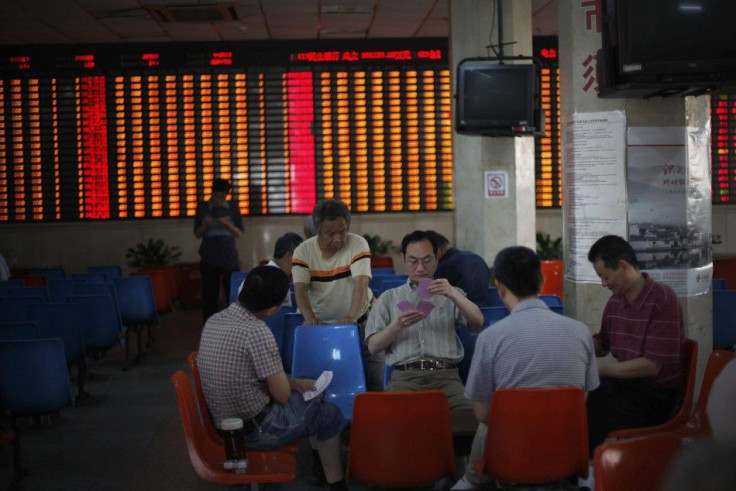China To Lower Standards For Foreign Investors In National Markets

Chinese market regulators announced Thursday they could be easing the rules that currently allow only a small group of foreign banks to invest in the national equity and bond markets, a move seen as part of a wider campaign to open the country's financial system to global competition. Whether by design or by coincidence, however, the move also takes a tremendous amount of pressure off the country's central bankers, who are between a rock and a hard place in deciding whether or not to inject additional liquidity into the Chinese financial system.
It's a win-win-win-win for the Chinese: They can now boast about having globally-facing markets, while local companies can sit back and see their share prices soar, pumped by the ?? (foreigner) money. And that nasty liquidity problem the People's Bank of China was sweating earlier last month? Gone. In a nutshell: Why do monetary easing yourself if you can let others do it for you?
The rule change, posted on the website of the China Securities Regulatory Commission, is straightforward enough. It lowers the standards that must be met by non-Chinese entities to rank as Qualified Foreign Institutional Investors, the only foreign entities that can invest directly in the Chinese stock and bond markets. Currently, the list stands at 88 financial firms and trusts, mostly European, Japanese and Korean banks, though it includes international giants like Goldman Sachs, UBS, Deutsche Bank, Morgan Stanley, JPMorgan, BNP Paribas and Barclays. The reason for the relatively small number of players: hefty barriers to entry that limit anyone with less than $5 billion and five years of investment experience in China from applying. Those limits are now being lowered to $500 million and two years, respectively.
The proposed changes are very positive for investors, Mark McCombe, Asia- Pacific chairman of BlackRock Inc., the world's largest asset manager told Bloomberg News I think the underlying objective is to get more investment into China.
And while that focus on investor giddiness is what is going to dominate the headlines, the other side of the equation is what the government stands to gain from the regulatory change.
The government wants to attract more investors and liquidity into the market, Chen Liqiu, a strategist at Jianghai Securities Co. in Shanghai also told Bloomberg News.
Therein lies the rub, as injecting liquidity is something the Chinese central bank is struggling with. In its most recent action, which surprised the markets on June 7, the People's Bank of China announced it was cutting its benchmark rate by 0.25 percent, a conventional move meant to provide accommodation by increasing the flow of money into financial markets. But the central bank has been careful not to wield rate cuts willy-nilly, mindful not to stoke up inflation that shot up north of a 6 percent annualized rate in 2011 (it has since declined to around 3.2 percent).
It's a situation similar to that faced by central banks in the United States and Europe, who have demurred on playing a more aggressive monetary easing hand this year, even as markets have clamored for them to do so, in keeping with the idea central bankers must be prudent about throwing the proverbial kitchen sink at boosting the economy if inflation begins rearing its ugly head.
But unlike those monetary regimes, China has just played its ace in the hole, opening up the floodgates of liquidity without having to make an official central bank move. Foreigners now account for about 1 percent of the total market capitalisation in the Shanghai and Shenzhen markets, according to the Financial Times, but that number will surely rise if the proposed reforms are implemented.
The stock exchange indices in Shanghai and Shenzen were down Thursday as they reacted to disappointing news from the U.S. Federal Reserve, so it is yet to be seen if the current developments prompts a pop on Friday, which is likely.
If that happens, the only question left will be: How come they didn't think of this before?
© Copyright IBTimes 2024. All rights reserved.





















